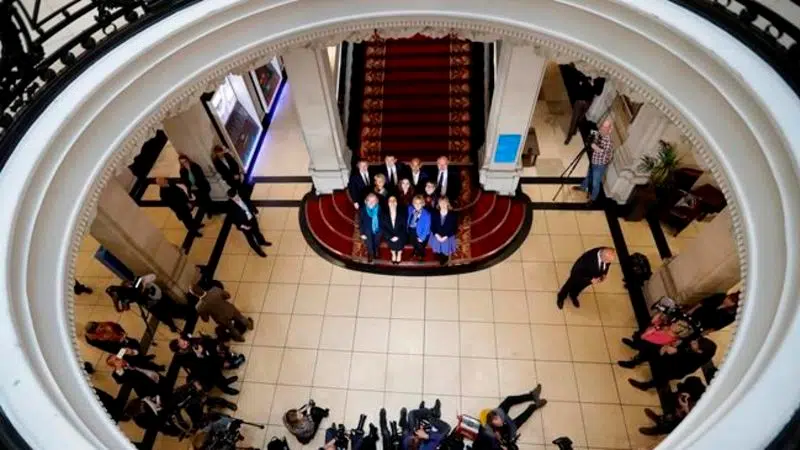
UK politics fractures further as 3 Conservatives defect
LONDON — Brexit-driven cracks in Britain’s political party system yawned wider Wednesday, as three pro-European lawmakers quit the ruling Conservatives to join a new centrist group of independents who oppose the Conservative government’s determination to take Britain out of the European Union with or without a divorce deal.
Anna Soubry, Heidi Allen and Sarah Wollaston resigned to join eight ex-opposition Labour Party lawmakers in an alliance dubbed the Independent Group. The defections involve only a small fraction of the 650 lawmakers in the House of Commons, but mark the biggest shake-up in decades for Britain’s political parties.
The breakaway lawmakers hope to gain members from disgruntled pro-Europeans in both the Labour and Conservative parties and forge a new force at the centre of British politics. They are inspired in part by the “En Marche” movement of French President Emmanuel Macron, which dominated France’s most recent presidential and legislative elections at the expense of the country’s mainstream parties.


